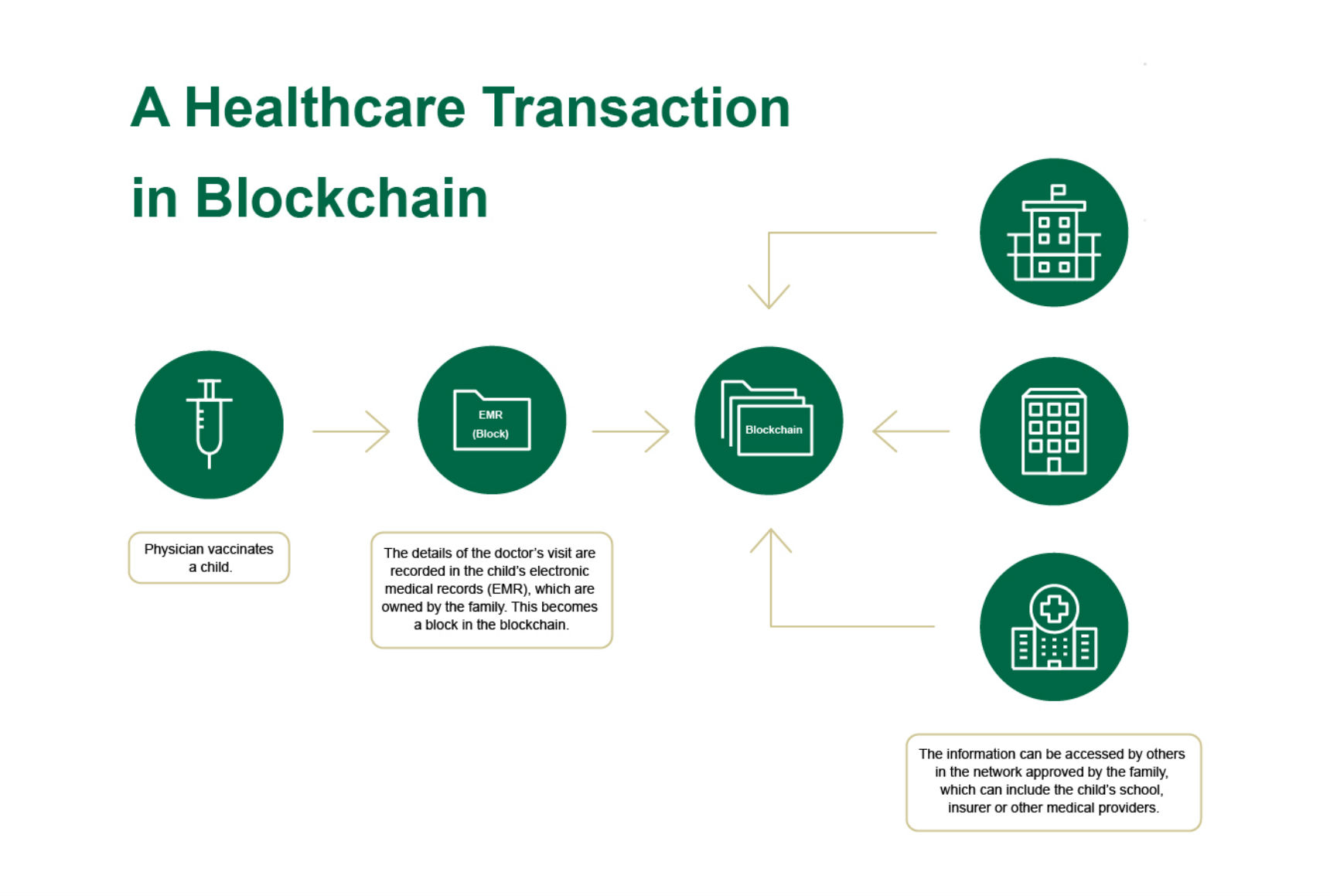The Role of Blockchain in Healthcare

- The Basics of Blockchain Technology
- Benefits of Implementing Blockchain in Healthcare
- Challenges and Concerns of Using Blockchain in Healthcare
- Real-life Examples of Blockchain Applications in Healthcare
- The Future of Blockchain in the Healthcare Industry
- Regulatory Considerations for Blockchain Implementation in Healthcare
The Basics of Blockchain Technology
Blockchain technology is a decentralized, distributed ledger system that securely records transactions across a network of computers. Each transaction is stored in a “block” that is linked to the previous block, forming a chain of blocks – hence the name “blockchain.” This technology ensures transparency, security, and immutability of data, making it ideal for industries like healthcare where data integrity is crucial.
One of the key features of blockchain technology is its ability to create a tamper-proof record of transactions. Once a block is added to the chain, it cannot be altered without changing all subsequent blocks, making it nearly impossible to manipulate the data. This feature is particularly valuable in healthcare, where patient records and sensitive information must be kept secure and accurate.
Another important aspect of blockchain technology is its decentralized nature. Unlike traditional databases that are stored on a central server, blockchain data is distributed across a network of computers, known as nodes. This decentralization eliminates the need for a central authority to validate transactions, reducing the risk of fraud and ensuring data integrity.
Blockchain technology also offers increased transparency and traceability. Each transaction on the blockchain is time-stamped and linked to the previous transaction, creating a transparent and auditable record of data. This feature is especially beneficial in healthcare, where tracking the provenance of medical records, prescriptions, and other sensitive information is essential.
Overall, blockchain technology has the potential to revolutionize the healthcare industry by improving data security, integrity, and interoperability. By leveraging blockchain technology, healthcare organizations can streamline processes, reduce costs, and enhance patient care. As the technology continues to evolve, its impact on healthcare is expected to grow, leading to a more efficient and patient-centric healthcare system.
Benefits of Implementing Blockchain in Healthcare
Implementing blockchain technology in healthcare offers a wide range of benefits that can revolutionize the industry. One of the key advantages is **increased** data security. By utilizing blockchain’s decentralized and encrypted **nature**, healthcare organizations can ensure that patient data is **protected** from cyber attacks and unauthorized access. This enhanced security **feature** can help prevent data breaches and ensure patient confidentiality.
Another benefit of integrating blockchain in healthcare is **improved** interoperability. With blockchain, different healthcare providers can securely share patient data in real-time, leading to more coordinated care and **better** patient outcomes. This seamless exchange of information can **streamline** processes and reduce administrative burdens for healthcare professionals.
Blockchain technology also **enhances** transparency and trust in the healthcare system. Patients can have **greater** visibility into who is accessing their data and for what purpose, **increasing** accountability among healthcare providers. This transparency can **help** build trust between patients and healthcare organizations, ultimately **improving** patient satisfaction and loyalty.
Moreover, blockchain can **facilitate** the development of personalized medicine by allowing for the secure storage and sharing of genomic data. This can **lead** to more targeted treatments and **better** health outcomes for patients. Additionally, blockchain can **help** with drug traceability, ensuring that medications are authentic and safe for consumption.
In conclusion, the implementation of blockchain technology in healthcare can bring about significant improvements in data security, interoperability, transparency, and personalized medicine. By harnessing the power of blockchain, the healthcare industry can **transform** the way patient data is managed and shared, ultimately **leading** to **better** outcomes for both patients and healthcare providers.
Challenges and Concerns of Using Blockchain in Healthcare
There are several challenges and concerns associated with the implementation of blockchain technology in the healthcare industry. One of the main concerns is the issue of data privacy and security. While blockchain is known for its secure and immutable nature, there is still a risk of data breaches and unauthorized access to sensitive patient information. This is a major concern for healthcare providers who are responsible for safeguarding patient data.
Another challenge is the interoperability of blockchain systems with existing healthcare IT infrastructure. Many healthcare organizations use different systems and protocols to manage patient data, which can make it difficult to integrate blockchain technology seamlessly. This lack of interoperability can hinder the adoption of blockchain in healthcare and limit its potential benefits.
Additionally, the scalability of blockchain technology is a concern in the healthcare industry. As the volume of patient data continues to grow, blockchain systems may struggle to handle the increasing workload. This could lead to delays in data processing and transactions, which could impact patient care and overall efficiency in healthcare operations.
Moreover, regulatory compliance is a significant challenge when it comes to using blockchain in healthcare. Healthcare organizations must adhere to strict regulations and standards to ensure patient safety and privacy. Implementing blockchain technology while complying with these regulations can be complex and time-consuming, requiring careful planning and coordination.
Real-life Examples of Blockchain Applications in Healthcare
Blockchain technology has been increasingly utilized in the healthcare industry to address various challenges and improve efficiency. Here are some real-life examples of blockchain applications in healthcare:
- Supply chain management: Blockchain can be used to track the movement of pharmaceuticals and medical devices throughout the supply chain, ensuring transparency and authenticity.
- Electronic health records (EHRs): By storing EHRs on a blockchain, patients can have secure access to their medical history, while healthcare providers can easily share and update information.
- Clinical trials: Blockchain can streamline the process of conducting clinical trials by securely storing and sharing data among researchers, sponsors, and regulatory bodies.
- Drug traceability: With blockchain, the provenance of drugs can be verified, reducing the risk of counterfeit medications entering the market.
- Telemedicine: Blockchain technology can facilitate secure and private telemedicine consultations, ensuring patient data confidentiality.
These examples demonstrate the diverse applications of blockchain in healthcare, showcasing its potential to revolutionize the industry and improve patient outcomes.
The Future of Blockchain in the Healthcare Industry
The future of blockchain in the healthcare industry looks promising as more and more organizations are exploring the potential benefits of this technology. Blockchain has the ability to revolutionize the way healthcare data is stored, shared, and accessed. By leveraging blockchain technology, healthcare providers can ensure the security and integrity of patient data while also streamlining processes and reducing costs.
One of the key advantages of blockchain in healthcare is its ability to create a secure and immutable ledger of patient information. This can help prevent data breaches and ensure that sensitive information remains confidential. Additionally, blockchain can facilitate the sharing of data between different healthcare providers, allowing for more coordinated and efficient care.
Another potential application of blockchain in healthcare is in the realm of medical research. By using blockchain to securely store and share research data, scientists can collaborate more effectively and accelerate the pace of medical discoveries. This can lead to the development of new treatments and therapies that can improve patient outcomes.
Overall, the future of blockchain in the healthcare industry is bright. As more organizations adopt this technology, we can expect to see improvements in data security, interoperability, and research collaboration. By harnessing the power of blockchain, the healthcare industry can move towards a more efficient, transparent, and patient-centered future.
Regulatory Considerations for Blockchain Implementation in Healthcare
When considering the implementation of blockchain technology in healthcare, it is crucial to take into account the various regulatory considerations that come into play. The healthcare industry is heavily regulated to ensure patient safety and data security, making it essential to comply with all relevant laws and guidelines.
One of the primary regulatory considerations for blockchain implementation in healthcare is data privacy. The Health Insurance Portability and Accountability Act (HIPAA) in the United States, for example, sets strict standards for the protection of patient health information. Blockchain technology can help ensure data privacy by providing a secure and transparent way to store and share sensitive information.
Another important regulatory consideration is data security. Healthcare data is highly sensitive and must be protected from unauthorized access or tampering. Blockchain’s decentralized and immutable nature makes it an ideal solution for ensuring the security and integrity of healthcare data.
Additionally, regulatory compliance is essential when implementing blockchain in healthcare. It is crucial to ensure that any blockchain solution meets the requirements set forth by regulatory bodies such as the Food and Drug Administration (FDA) or the European Medicines Agency (EMA). Failure to comply with these regulations can result in severe penalties and legal consequences.
In conclusion, when considering the implementation of blockchain technology in healthcare, it is essential to carefully consider the various regulatory considerations that come into play. By ensuring compliance with data privacy, security, and regulatory standards, healthcare organizations can leverage blockchain technology to improve patient care and streamline operations.






